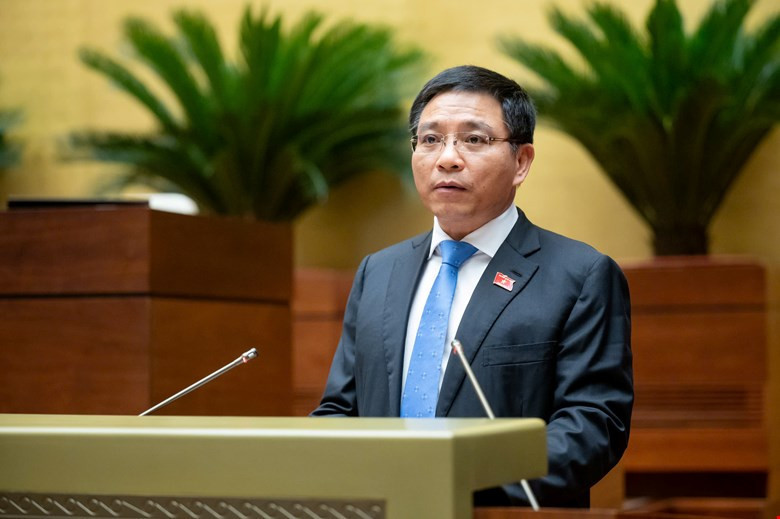
Finance Minister Nguyen Van Thang on May 15, 2025, authorized by the Prime Minister, presented the draft law to the National Assembly
Thang stated that, given new economic, social, and international changes, the current State Budget Law has revealed limitations and shortcomings, necessitating amendments to meet the demands and reach double-digit economic growth.
The draft law, comprising seven chapters and 76 articles, proposes revisions to align with a two-tier government model, phasing out district-level administration, and includes principles for allocating state budget expenditures for science, technology, innovation, and digital transformation.
The draft expands the Prime Minister’s authority to develop socio-economic plans, state budget estimates, detailed allocation of unassigned funds, and use of central budget reserves. It also redefines the allocation of revenue generated from corporate income tax, personal income tax, special consumption tax, and environmental protection tax.
The draft proposes changes to the allocation of revenue from VAT collection, including VAT on imported goods. After deducting refunds, the central budget will receive 70 percent, and local budgets 30 percent. The 30 percent will be distributed based on criteria like population, area, and other factors.
For revenue from land use fees and land rents, localities unable to balance their budgets will receive 70 percent, instead of 100 percent as currently stipulated.
According to the Finance Minister, the draft law is designed in a way to streamline procedures, enhance decentralization, and delegate authority to local levels for budget adjustments and finalization.
For instance, localities have the right to issue policies if authorized by provincial People’s Councils, or measures addressing natural disasters, catastrophes, or severe epidemics.
Phan Van Mai, Chair of the National Assembly’s Economics and Financial Committee, presented a verification report, stating that the committee agrees with the Government’s proposal to cover the additional task of expenditure from the state budget reserve for certain activities to ensure consistency with public-private partnership investment laws and the National Reserve Law.
However, most opinions deemed the proposal to raise the reserve ceiling to 5 percent inappropriate, recommending keeping it unchanged.
Regarding revenue allocation between the central and local budgets, Mai said the committee agrees in principle with changing the revenue allocation method, eliminating principles for revenue and expenditure decentralization and inter-budget relations during stable budget periods.
However, the verification agency found the proposal to grant the Government authority to adjust budget estimates unsuitable, as it could lead to overlapping functions, undermine financial discipline, and conflict with reform goals.
“The current regulations already ensure decentralization in budget estimate decisions. The National Assembly only determines the total amount of capital by sector and doesn’t specify every task,” Mai said.
Tuan Nguyen